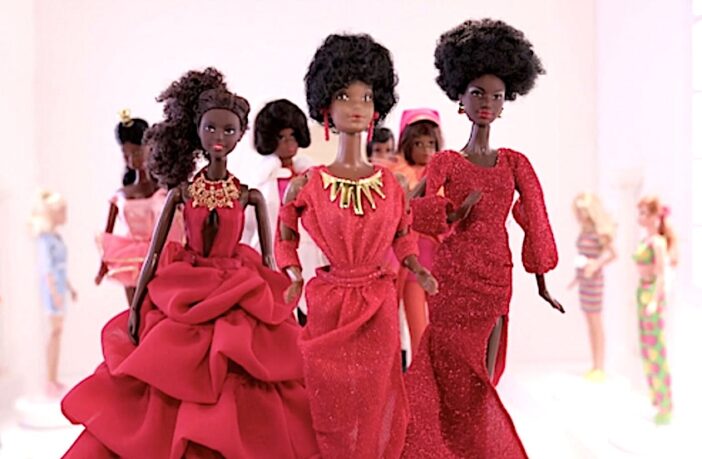Directed by Lagueria Davis and produced by Aaliyah Williams, Black Barbie delves into the effort to increase representation for young Black girls through the lens of the iconic Barbie doll.
Highlighting the cultural impact and stories behind the creation of Black Barbie, this documentary is a testament to the power of representation and the perseverance of Black women. Team EBONY sat down with the filmmakers, Director Lagueria Davis and Producer Aaliyah Williams, along with key voices of Black Barbie, to discuss their moving documentary.
Here are five lessons we learned—and five reasons to watch.
The filmmakers wanted to tell a historic story about Black women, by Black women, for Black women.
Davis says, “I came into it thinking it felt really important that we be able to have this story first and foremost. It felt like it was something outside of just beauty. [We wanted to] get it right for the culture and wanted the film to perform well. You have something that’s by Black women, for Black women, about Black women and there’s societal pressures and barriers there.”
Black Barbie reveals the tale of a decadeslong effort by primarily Black women to increase representation for young Black girls.
“Looking at the timeline, there’s 30 years of a lot of change,” Williams states. “You lay it out from Brown versus Board of Education and integration of schools to moving through the civil rights movement, it just made sense. It’s like, we’re here…so why not have dolls that represent us?”
Black Barbie is a tale of success even when the odds can be stacked against you.
“We talked a lot with Mattel’s archival people, and we were like, ‘Hey, can you pull us some ads or commercials or anything that can show us what support Black Barbie got besides just the product itself,’” Williams said. “No one could locate that stuff. But unexpectedly, for them at least, Black Barbie did very well in terms of sales.
The first Black Barbie doll was a chance for Black women to see themselves represented in a way that was previously difficult to find.
Former Barbie designer Kitty Black Perkins shared, “In conception, [Black Barbie] was really a part of me because everything that I designed for Barbie, I designed with the idea in mind, ‘Is that something that I would wear?’ And when I asked myself that question and the answer was ‘No,’ I started over.
Black Barbie inspired young Black creatives to pursue their dreams and continue to advocate for positive representation in the toy industry.
“Barbie was like my dream world because she had blonde hair and blue eyes,” said former Barbie designer Stacey McBride-Irby. “She had the Corvette. She had the dream house. She had all the fashions. She made me want to be a fashion designer. So I went to fashion school. My grandmother didn’t really want me to do that because she didn’t see anyone who looked like me, but my dad saved the newspaper article on Miss Kitty Black Perkins. So that was my inspiration for going to fashion school.”
Black Barbie is now streaming on Netflix.



